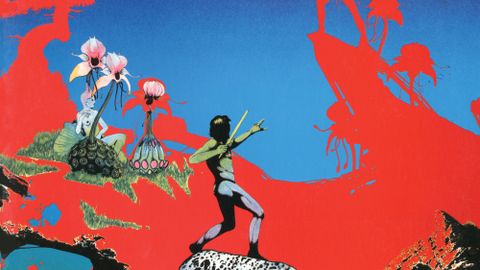These three albums represent an era when Uriah Heep were right up with Deep Purple. They’re the best records the band ever made – surely nobody would argue that Wonderworld or Firefly are their equal? – and as such, every fan of 70s heavy rock should already have them nestling proudly in their collection.
However, for those who don’t, here’s why you should grab these expanded reissues. For a start, the original albums are magnificent. David Byron’s eloquence as a vocalist is right to the fore. His delivery has genuine gravitas, but he also realises he’s not playing Hamlet or King Lear. The combination of Mick Box’s guitar and Ken Hensley’s organ is enigmatic and profound, yet also has a welcome lightness when required.
1971’s Look At Yourself (8/10) was the band’s third LP. With its mirror cover, it has some masterful moments, with July Morning the standout. This epic has a swirling panorama of sounds, and the pangs of a hormonal struggle to get to grips with the angst of lust and love is compulsive. But other songs, like the title track and I Wanna Be Free, are also stirring.
The next year, Demons And Wizards (8/10) continued the journey, as the band revelled in finding their range. Easy Livin’ struts along, The Wizard is a mythic overture, and Rainbow Demon complements some heavy rhythms from drummer Lee Kerslake with surprising subtlety on a tale that’s about a band on the road, couched in creative language.
Later in ’72, Heep put out The Magician’s Birthday (9/10) It’s their finest album, with the band in inspirational mood. Here, their pomp, power and imagination reach a very high level. Conceptual, the tracks flow remarkably, with Sunrise, Sweet Lorraine and the vast title track all proving mesmeric. There’s a confident flamboyance throughout, but this is tinged with a self-awareness that allows Heep to be accessible: they invite you into their world of mystery, intrigue and fulfilment.
All these albums have been remastered and come with bonus CDs featuring alternative takes and mixes. And a lot of this extra material is worth having. There are some hitherto undiscovered gems here, making these reissues historically invaluable for Heep devotees.


